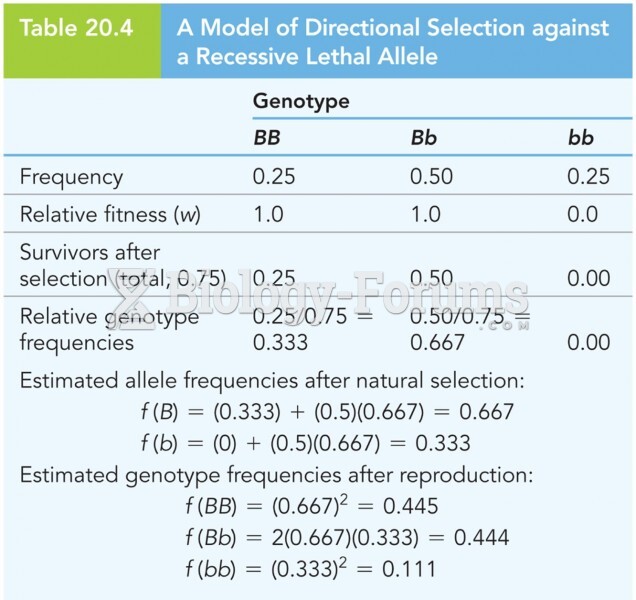This topic contains a solution. Click here to go to the answer
|
|
|
Did you know?
Fewer than 10% of babies are born on their exact due dates, 50% are born within 1 week of the due date, and 90% are born within 2 weeks of the date.
Did you know?
Patients should never assume they are being given the appropriate drugs. They should make sure they know which drugs are being prescribed, and always double-check that the drugs received match the prescription.
Did you know?
The average adult has about 21 square feet of skin.
Did you know?
The average office desk has 400 times more bacteria on it than a toilet.
Did you know?
Green tea is able to stop the scent of garlic or onion from causing bad breath.







